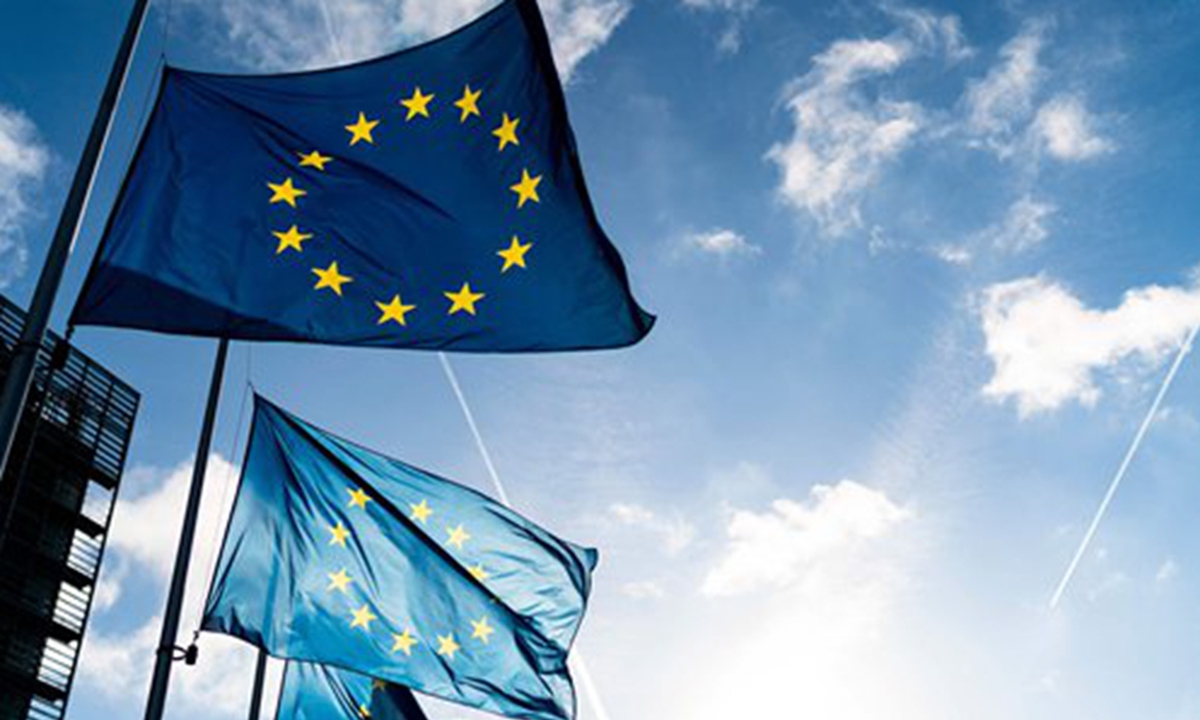
Photo: VCG
In 1995, Sweden became a member of the European Union. A Swedish scholar I interviewed at the time told me that if I had asked him then, "What's your nationality?" He would have said without hesitation, "I am Swedish." But after joining the EU, Swedes face a problem of identity transition. He wondered how long it would be before Swedes, when asked this question, would first answer that they were "European."
Later, I moved to Belgium to work, witnessing the launch of the euro and the eastward expansion of NATO. But this issue has always been a base for my observation of European integration, a process that is not only geopolitical, but also an expansion of ideologies and political systems, and the dramatic changes that this entails.
It was not until the conflict between Russia and Ukraine over Crimea broke out in 2014 that I realized that European integration has borders. The ideals of the predecessors of European integration who expected to eliminate war through integration remained so distant.
Such a process of great integration and unification is not a peaceful national identity, faith identity, or cultural identity, but is fraught with the risk of war, rooted in the warlike imperial rivalry that characterizes Western civilization.
The Romanians, Poles, Swedes, and Finns fantasize about being European, but what about the Russians? Their identity must be even stronger. Such an identity will be extended to people with common religious and cultural traditions, and to Russians scattered throughout the neighboring countries and regions.
European integration will eventually lead to two choices for Russians: either to transform themselves into Europeans or to remain Russians without being "dissolved." In the end, it is once again a historical tragedy: eat or be eaten.
As the American scholar Samuel Huntington clearly states in his book "The Clash of Civilizations": "The West won the world not by the superiority of its ideas or values or religion (to which few members of other civilizations were converted) but rather by its superiority in applying organized violence. Westerners often forget this fact; non-Westerners never do."
The tragedy in Ukraine is an escalation of the version of a war game, and such an escalation will continue in 2.0, 3.0, 4.0 ...... according to the laws of this game and the design of its creators.
Western public opinion is keen to compare Russia to Germany in the past, but it is not difficult to find a comparison of Hitler's Germany through the war history of Europe.
Like World War I, World War II, and the Cold War, this current military clash in Europe has been intensely ruinous and destructive to global development, especially to developing countries around the world.
The Europeans, still standing on their high pedestal, are now calling on the world to support them to fight Russia, but they cannot convince the majority of the world that they can end the war forever.
European scholars are always at pains to tell people that Western civilization is progressing from war and will eventually find an order to preserve peace, but such claims are constantly proven wrong by reality.
Niall Ferguson, a Laurence A Tisch Professor of History at Harvard, wrote an article in the Financial Times entitled War: In history's shadow (2014.8.2), in which he concludes, as we commemorate the outbreak of the first world war, let no one swallow the old but tenacious lie that their "sacrifice" was a necessary and noble one. On the contrary, the war is best understood as the greatest error of modern history. That is a harsh truth that many historians still find unpalatable. But then, as AJP Taylor once observed, most people who study history only "learn from the mistakes of the past how to make new ones".
The Russian-Ukrainian conflict is not a single episode, nor is it a multi-act play, but an episode in a serial with no end.
The author is a senior editor with People's Daily, and currently a senior fellow with the Chongyang Institute for Financial Studies at Renmin University of China. dinggang@globaltimes.com.cn. Follow him on Twitter @dinggangchina




